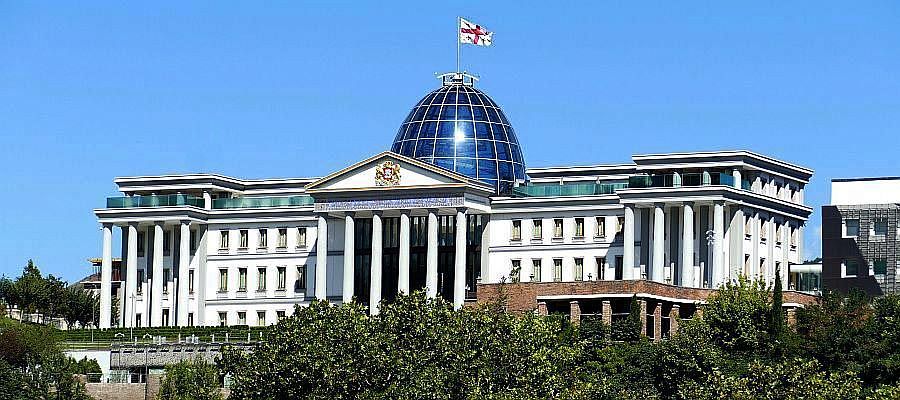Despite the EU’s best efforts to diversify suppliers, Russian gas exports to Europe grew by 8.1 % to hit a record high of 193.9 billion cubic meters last year. More than a decade after Russia 1st shut off the spigot to Europe over a pricing dispute with Ukraine, Gazprom’s share of the EU gas market has increased from a quarter in the 1990s to a stunning one-third today.
This worrying development comes at the same time Bulgaria, a country sitting squarely in Moscow’s long shadow, assumes the presidency of the EU Council and considerable sway over European affairs. What do the next 6 months have in store for Europe’s shaky energy security? And could the US help?
Indeed, other than Brexit and the refugee crisis, the Nord Stream 2 file is the trickiest dossier Sofia will have on its lap for the next 6 months. Bulgaria now has a key role to play in the potential expansion of a gas pipeline that would allow Gazprom to send more gas to Europe.

There is still no agreement on whether to give the European Commission a mandate to negotiate the project with Russia at present. The US has been pushing Poland and other states to ask for the negotiating mandate, while Germany – the pipeline’s final destination – thinks there is no need to involve Brussels.
As the bloc’s umpire for the next 6 months, Bulgaria’s position will be key – but it’s unclear whether Sofia has the mettle to go toe-to-toe with Moscow.
Russia has been harboring ambitions to build the Nord Stream 2 under the Baltic Sea (alongside the Nord Stream 1 pipeline) to Germany for years, much to Washington’s understandable chagrin. Nord Stream 2 wouldn’t just grant Russian gas an almost impregnable position on the European market; it would also deal a blow to the Ukrainian economy, which makes over a $1 billion a year from gas transiting its territory to reach Europe.
The expanded pipeline would also offset the need to use the Soviet-era Brotherhood route connecting Western Siberia to Slovakia via Ukraine.
As president of the EU Council, Bulgaria will have to perform a high-flying balancing act on this thorniest of energy questions. It will need to grapple not only with various intra-EU disputes, but also with internal dynamics and its own relations with Russia and the US.
In addition to American concerns, Poland and other EU member states remain highly distrustful of Moscow and the threat posed by Russian gas dominance.
The Nordic states have also raised security questions about plans to construct the pipeline along their coasts, where Moscow is strengthening its military footprint. To hedge against Russia’s growing control of the market, both Poland and Lithuania have built new terminals to receive LNG from the US and other suppliers.
In July 2017, Poland received its 1st shipment of US LNG at the new Swinoujscie terminal. In August, Lithuania obtained its 1st spot shipment via its floating LNG terminal in Klaipeda.

Bulgaria itself would see minimal impact from Nord Stream 2, but Sofia remains highly dependent on Russian gas and is perfectly conscious of Moscow’s ability to switch off the valve. Gazprom is the only natural gas supplier in the country, which was hit by a price disagreement between Russia and Ukraine that caused Gazprom to halt gas supplies to Eastern Europe for nearly 2 weeks last winter.
The Kozloduy NPP in Northern Bulgaria is entirely dependent on Russian fuel and equipment. Lukoil also maintains a heavy presence in Bulgaria and owns the only oil refinery in the country. While the government is currently negotiating the construction of several cross-border interconnectors with its neighbors, energy independence remains years away.
Russian business interests have penetrated other sectors deeply as well, warping Bulgaria’s investment climate. According to a recent study by the Washington-based Center for Strategic and International Studies, investment with direct or indirect Russian origins accounts for more than 22% of Bulgaria’s GDP. According to those findings, the country qualifies as a captured state.
That captured state will now be asked to stand up to Vladimir Putin’s ambitions and preserve Europe’s energy independence.

Unsurprisingly, these oligarchic networks are closely entwined with domestic politics up to the highest levels of government. According to a collection of leaked US diplomatic cables, Prime Minister Boyko Borisov himself has been implicated in a series of criminal dealings and has longstanding ties with Lukoil and the Russian embassy.
Russian government interests have their own history of bankrolling questionable campaigns in Bulgaria. In 2015, Bulgarian and international observers identified Kremlin-backed Orthodox priests as a main instigator behind environmentalists’ successful campaign to enact legislation banning fracking for oil and gas. The rules eventually drove out Chevron, dealing a setback to Bulgaria’s hopes for weaning itself off Russian gas.
Moscow is not the only outside player Bulgaria will have to be conscious of when it comes to negotiating the Nord Stream 2 project. Despite President Trump’s pro-Russian rhetoric, the US remains strongly opposed to the proposed pipeline and has not hesitated to make its feelings known.
New sanctions against Russia have already made financing major projects like Nord Stream 2 incredibly difficult, and the State Department has said European companies involved in the project could face US sanctions depending on the contours of the deal.
These competing dynamics leave Bulgaria in a tight spot, caught between sparring EU states but also between Moscow and Washington. How it performs in navigating these competing interests could impact Europe’s drive to achieve energy independence and wean itself off reliance on Russian gas for years to come.
Author: Scott Belinksi







